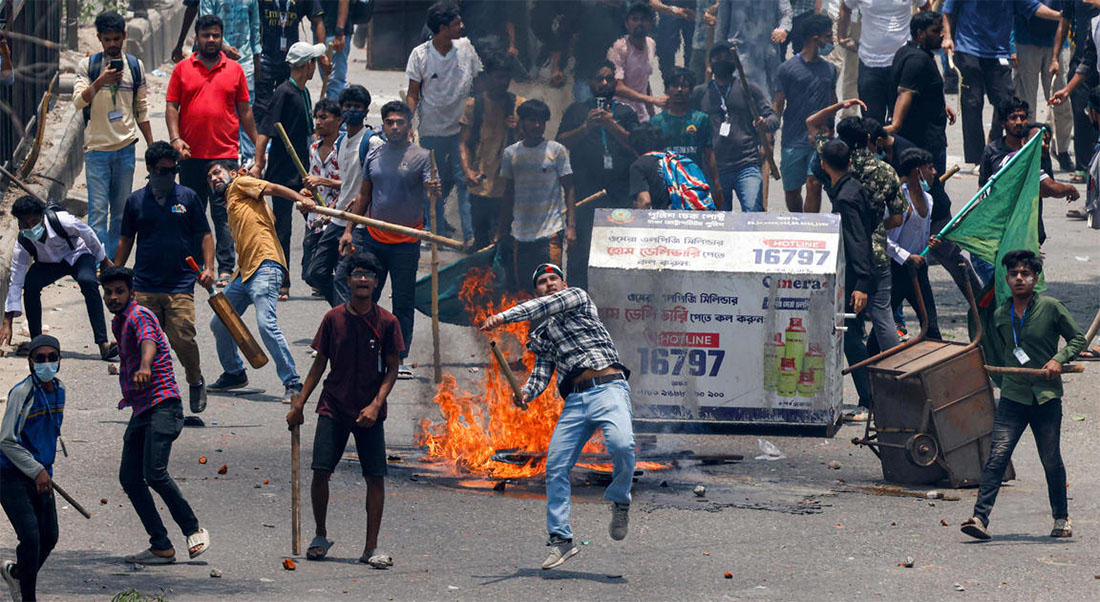
Photo Credit: Getty Images
Bangladesh erupted in violence on Sunday as student-led protests escalated into deadly clashes, leaving dozens dead and hundreds injured across the country. The unrest, which began in June over a controversial quota system for public sector jobs, has morphed into a wider anti-government movement demanding Prime Minister Sheikh Hasina's resignation.
According to local media reports, at least 50 people, including 14 police officers, were killed in the day's violence. The leading Bengali-language daily Prothom Alo reported 49 deaths, while Channel 24 put the toll at 50. Hospitals in various districts reported numerous casualties, with many victims suffering gunshot wounds.
The Interior Ministry imposed an indefinite nationwide curfew from 6 pm local time, marking the first such measure since the protests began. Authorities also shut down mobile internet services and blocked social media platforms in an attempt to quell the unrest.
Violence erupted in multiple locations, with Dhaka's Shahbagh area becoming a focal point of confrontations. Protesters reportedly attacked Bangabandhu Sheikh Mujib Medical University, torching several vehicles. An unnamed police officer told AFP, "The whole city has turned into a battleground."
In Feni district, at least five people were killed in clashes between ruling party supporters and protesters. Dr. Asif Iqbal, a medical officer at a local hospital, confirmed that all five victims had suffered gunshot wounds. Similar scenes of violence unfolded in Munshiganj, Rangpur, Pabna, and other districts.
Prime Minister Hasina, who has ruled Bangladesh since 2009, accused protesters of "sabotage" and urged citizens to confront them. "Those who were engaging in destruction in the name of protests were no longer students, but criminals," she declared, calling for an "iron hand" approach.
The protests, which initially focused on reforming the job quota system, have evolved into a broader movement demanding accountability for alleged police brutality during earlier demonstrations. In July, the Supreme Court reduced the quota for descendants of independence war veterans from 30% to 5%, but this failed to quell the unrest.
Opposition leaders have seized on the chaos, with Mirza Fakhrul Islam Alamgir, secretary-general of the Bangladesh Nationalist Party, reiterating calls for the government to step down. However, the ruling Awami League accuses opposition parties of hijacking the student movement for political gain.
















